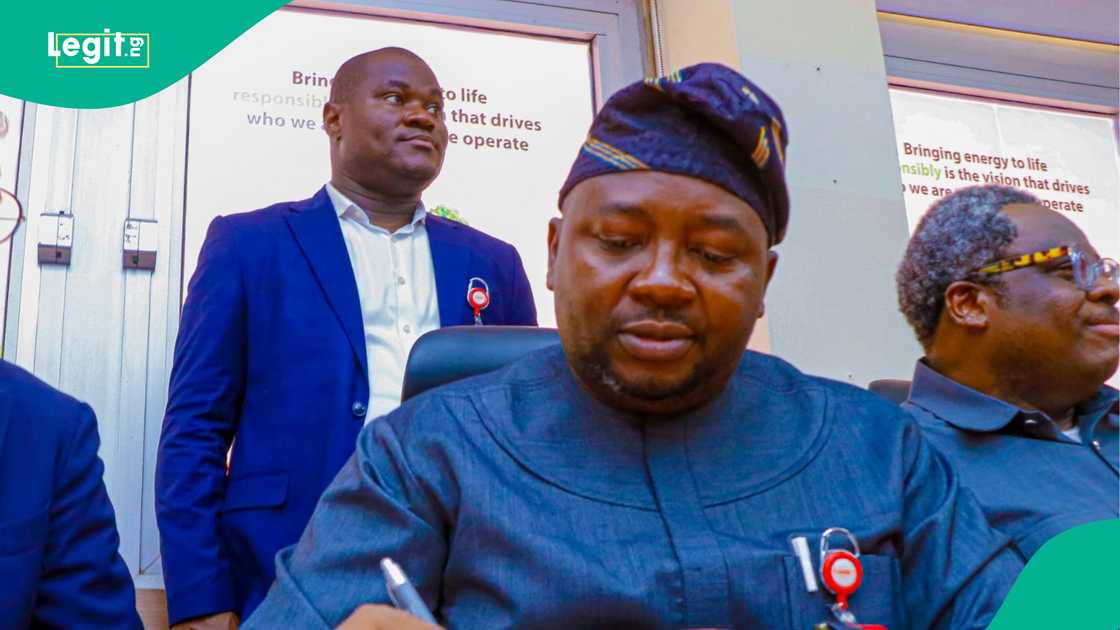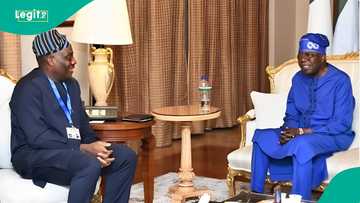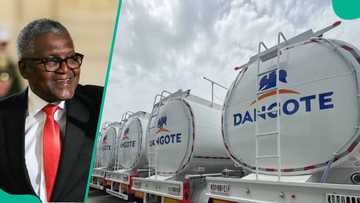Adelabu Says FG Can No Longer Afford Power Subsidy, Higher Tariff Coming
- The Federal Government is planning to implement a cost-reflective electricity tariff to address a mounting N4 trillion subsidy debt in the power sector
- Power minister said the transition is necessary for long-term sustainability, but consumers and experts argue that service delivery remains too poor to justify any hike
- Critics insist that tariff increases without infrastructure upgrades and reliable power supply will only burden Nigerians further
The Federal Government is preparing to phase out electricity subsidies and implement a fully cost-reflective tariff structure, a move aimed at addressing the N4 trillion debt owed to power generation companies and improving the long-term viability of the energy sector.
Speaking during the Mission 300 Stakeholders’ Engagement in Abuja, Minister of Power Adebayo Adelabu explained that the current model is unsustainable.

Source: Twitter
As reported by Daily Trust, Adelabu said the government intends to introduce targeted subsidies for vulnerable citizens while transitioning to a system that reflects the true cost of electricity production and distribution.
“Currently, there’s a huge outstanding debt to the power generation companies in the form of unpaid government subsidies which stands at about N4trn as of December 2024,” Adelabu said.
“The Federal Government is already working out modalities to defray this obligation and to ensure that further obligations are not accrued going forward.”
This shift would likely trigger a broader increase in electricity tariffs across all customer bands. While Band A customers already pay higher rates, the minister’s remarks point to the possibility of similar adjustments for lower bands.
Consumers groan to news of electricity tariff hike
Nigerians have expressed frustration, arguing that service quality remains too poor to justify any hike in tariffs. Many consumers complain of erratic supply, inadequate infrastructure, and a near absence of accountability from distribution companies (DisCos).
“The issue is that you are charging more without improving the service,” said Kunle Olubiyo, President of the Nigeria Consumer Protection Network.
“Since 2015, we have barely added 400 megawatts to the grid. Band segmentation may have raised revenue, but it hasn’t translated to better electricity delivery.”

Source: Twitter
He further warned that tariff increases without visible improvements could deepen political and economic discontent.
“Tariffs should not be at the expense of implementing service-level agreements,” Olubiyo said.
Bode Fadipe, CEO of Sage Consulting, added that cost reflectivity alone won't fix the sector’s underlying problems, especially without strong investment in infrastructure.
“Why are we focused solely on price when there are serious policy and investment issues still unresolved?” he asked.
Even ordinary citizens are voicing skepticism. Abubakar Aliyu, a resident of Gwagwalada in Abuja, told Daily Trust he often receives less than six hours of power per day.
“We’re in the dark most days. Before talking about tariff increases, they need to fix the service first,” he said.
Despite the reforms, many stakeholders argue that without a parallel focus on expanding capacity, transparency, and service delivery, cost-reflective tariffs alone may worsen public dissatisfaction with Nigeria’s power sector.

Read also
Education minister Alausa clears ₦50bn allowance backlog for varsity lecturers after nearly 20 years
Prepare to pay higher electricity tariff - Adelabu
Earlier, Legit.ng reported that the power Minister Adebayo Adelabu had stated that Nigeria can no longer sustain the electricity subsidy.
He has urged Nigerians to be prepared to pay cost-reflective electricity amid huge debts owed by the government for the subsidy.
The NERC reveals that only 15% of electricity users (Band A) pay full rates, the rest receive a subsidy.
Source: Legit.ng




